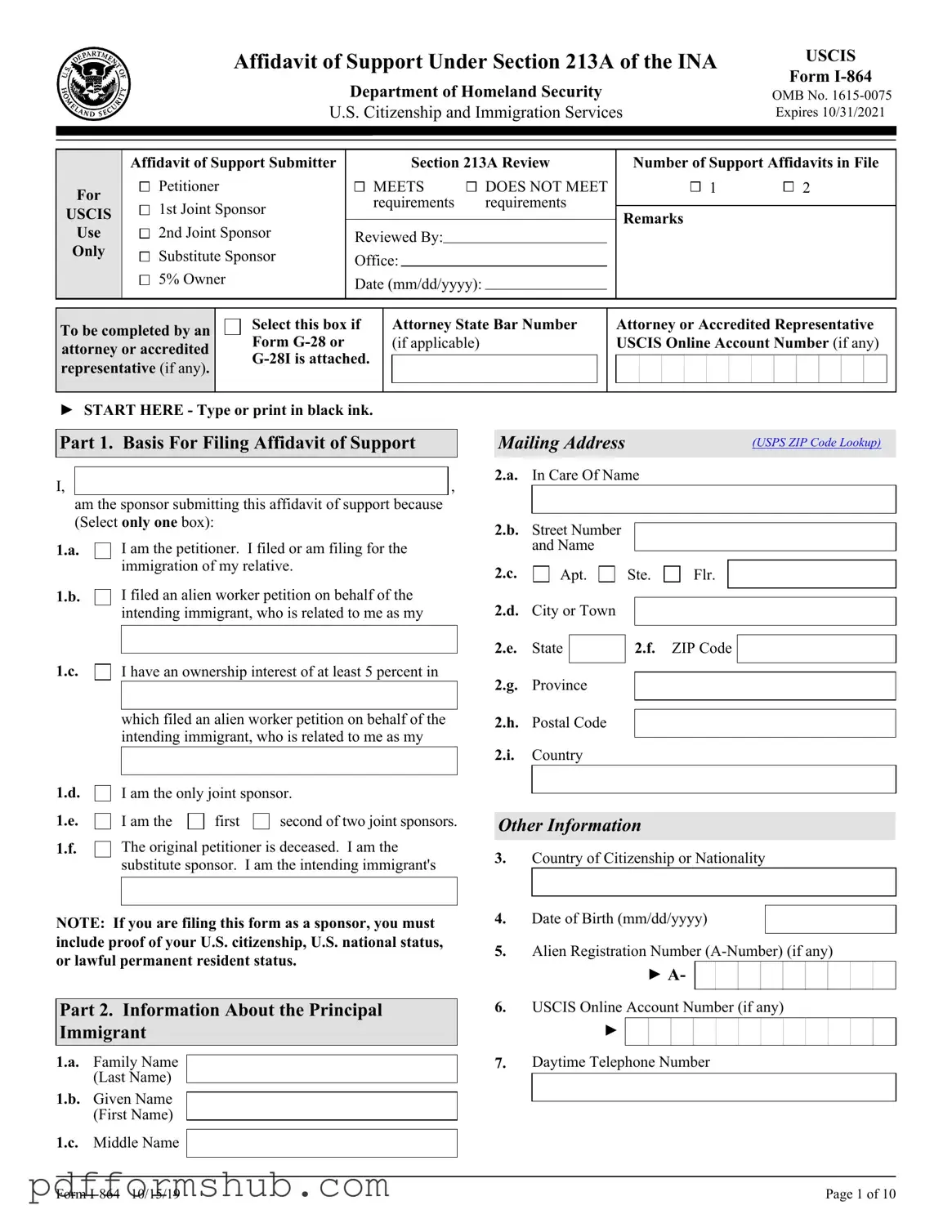Fill in Your USCIS I-864 Form
The USCIS I-864 form, also known as the Affidavit of Support, is a legal document that demonstrates a sponsor's commitment to financially support an immigrant applying for a green card. This form is crucial in ensuring that the immigrant will not become a public charge and is often a key component of the immigration process. Understanding the requirements and implications of the I-864 is essential for both sponsors and applicants.
Ready to fill out the I-864 form? Click the button below to get started!
Customize Form

Fill in Your USCIS I-864 Form
Customize Form

Customize Form
or
Free PDF Form
Short deadline? Complete this form now
Complete USCIS I-864 online without printing hassles.